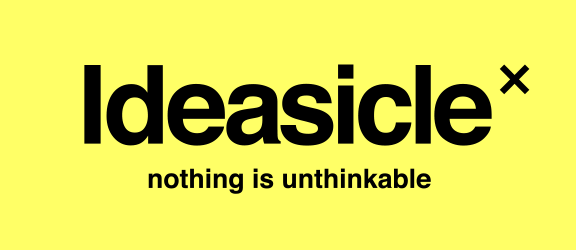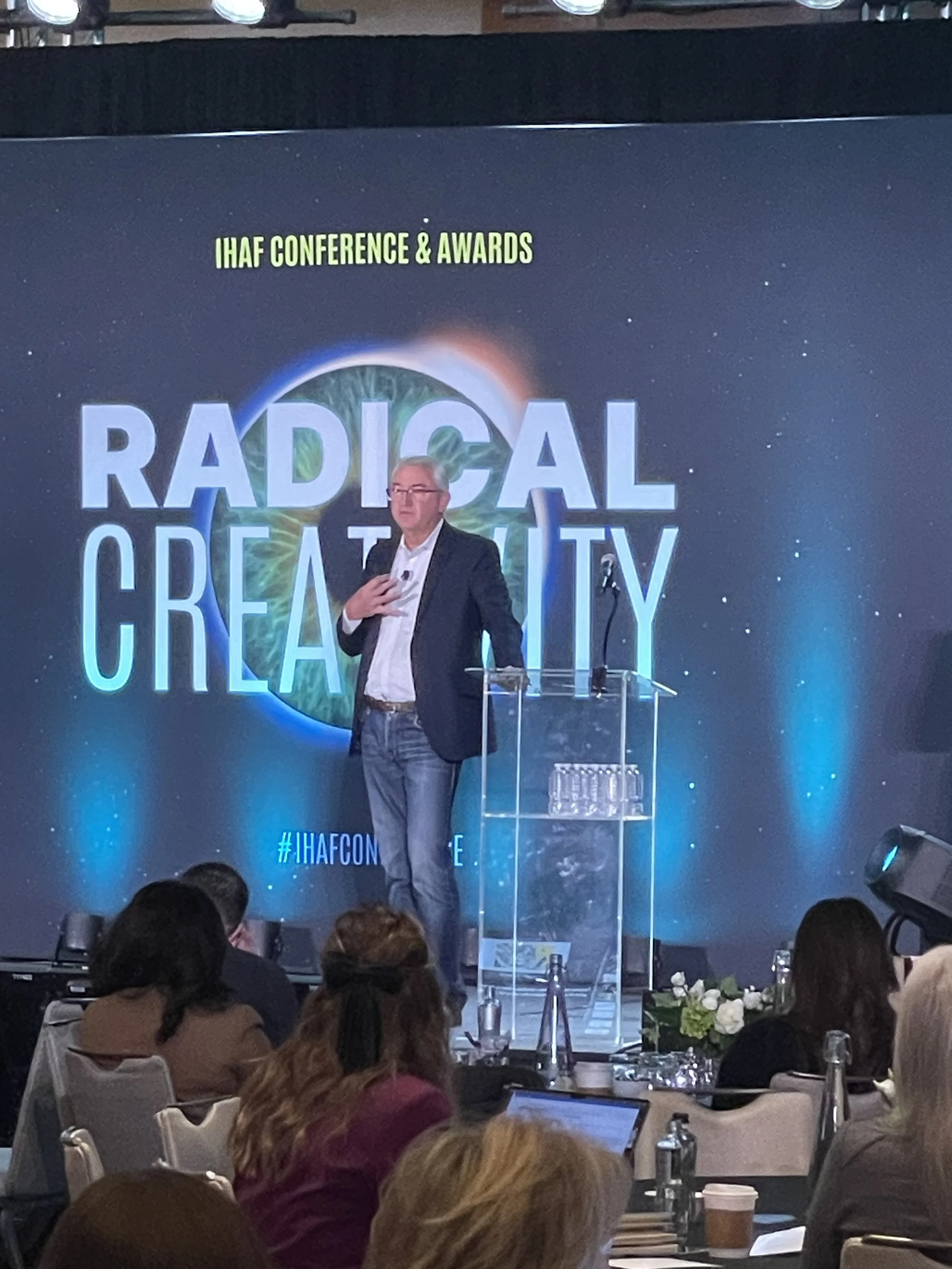This interactive tool lets you slide through the five variables, tweaking each one to see how it impacts your pitch odds in real time. Think your strategy’s a 10 but your client relationship’s a 5? Well, that client may not see that strategy as a 10 (even if it is). Slide those dials and watch the odds adjust, with instant feedback on what to fix.
Read MoreWhether you love Trump or hate him, he's given American brands a trump card they need to start playing right away. It's in the interest of the American brands, but also in the interest of the American economy. And for some even patriotic, but that isn’t required. The “trump card” is the tariffs and I have three ways for American brands to take full advantage and to accelerate our economy through the tariff pain.
Read MoreI have been in advertising long enough now to see that “creative ideas” have had a hell of a ride. Depending on the decade, ideas have been the champion soaring to glory, they’ve been battered by industry upheavals, and nearly lost in a sea of endless channels. What follows is my interpretation of the “hero’s journey” of the creative idea through advertising’s chaotic past—its triumphs, trials, and a future where I believe it’s poised to reclaim its rightful throne.
Read MoreHere’s a jolt for all you advertising idea people: direct mail—that dusty relic you’ve been calling “junk” since the dawn of spam filters—is back.. Not as a quaint throwback, but as a channel with unexpected pull in our screen-saturated world. The irony? The digital deluge we’ve been navigating has cracked open a window for something physical to matter again.
Read MoreWhat if we handed the whole brand—every doc, every win, every faceplant—to an AI that never blinks, never misreads, and never clocks out? Picture an AI that keeps learning as your brand shifts, but locks down everything you’ve ever thrown at it. No more “I think the brand would do X.” No more drift. Just a flawless, evergreen brand brain that can talk to you.
Read MoreClients are bailing on Agencies of Record (AOR) faster than you can say “retainer,” trading predictable monthly fees for a chaotic buffet of unpredictable project work. Pitches, one-off campaigns, quick-turn concepts—agencies need to reframe how they look at these. These projects aren’t just odd jobs anymore, they’ve become critical Idea Events. High-stakes, short-fuse moments where concentrated brilliance is the only way to win the day.
Read MoreArtificial Intelligence cut our Hallmark production costs by about 70%—and it’s coming for the $500 billion ad industry next. For 15 years, Ideasicle stuck to ideation, leaving production to clients. It was principle: no 'production bias' to filter out ideas we don’t have the staff to produce. But when Matt Resteghini at Hallmark saw our AI-generated pitch images, he threw down the gauntlet—produce the campaign Hallmark approved with AI, on a tiny budget. The creative team, Rich Wallace and Ernie Schenck, and I said yes. Why? The campaign was too good, and AI was the only way to do it within budget. What we didn’t expect? This little pivot might just kill the 'time of staff' model for good.
Read MoreI had a thought about music we listen to in our 3D world of time and space, and wondered if music really originates from a higher dimension. And if so, what did music look and sound like in a higher dimension? Anyway, I took to an intelligence more artificial than mine, ChatGPT, but also more complete. We start with music, but somehow end up with God and an incredibly inspirational message.
Read MoreYour internal agency team knows your brand, your products, your challenges, and your goals like no one else. But for certain idea projects, where fresh thinking is essential, hiring outside freelance talent is less an expense than a shortcut to a big, valuable idea. Outside freelancers bring unique superpowers. Here are 7 of them.
Read MoreAsk anyone to define creativity, and chances are they’ll point to the arts—painting, writing, music, theater. And sure, that’s one outcome of it. But I am convinced creativity is something much broader. It’s a life skill that can be developed, refined, and even taught.
Read MoreI spoke recently at the In-house Agency Forum about the many ways virtual idea generation is better than in-person. Things like this thing called online disinhibition, it’s asynchronous, it allows creativity to happen in the wild, etc. Worth considering as agencies contemplate moving creative people back to the offices or go hybrid. We don’t want to throw the baby out with the bathwater.
Read MoreEverybody’s talking about Coca Cola’s new Christmas ad, which was made entirely with artificial intelligence. The issues people have with it are many. Everything from it being creepy to others saying Coca Cola cheaped out and didn’t want to pay real actors. I also found the ad to be creepy, particularly the scenes with people in them. And it was in the creepy feeling that I had a small spiritual epiphany.
Read MoreMany virtual brainstorming tools focus on one main function—creating a shared virtual space for ideas. Platforms like Miro and Google Docs provide simple online frameworks for brainstorming, offering a blank canvas or a shared document where teams can contribute ideas in realtime or over time. While effective for light collaboration, it doesn’t take long to realize these tools were not developed for the advertising business. Google Docs wasn’t even developed for idea generation. Here’s why that matters and what you can do about it.
Read MoreMany businesses think their logo is their brand. Spoiler alert: it’s not. A logo, like a brand name, is simply a symbol that represents a brand, but it doesn’t define the brand itself. What makes a brand truly powerful goes much deeper than visuals or words.
Read More2024 is moving by at a blinding pace. But 2025 is giving us clues as to what marketers could be doing now in order to get ready. We want you to be prepared, so we’ve been thinking about what the three most important “kinds” of ideas marketers can be thinking about now in preparation for what will likely be a wild 2025.
Read MoreIn much of the advertising world, the creative brief is treated like a static document—a checklist, a rulebook, a set of instructions. But at Ideasicle X, we see it differently. For us, the brief isn’t the final word—it’s the first spark. It ignites the creative process, and while the brief itself doesn’t change during the creative process, its influence on the creative team grows and evolves as the ideas take shape. When approached the right way, a brief doesn’t dictate creative solutions, it fuels them, turning into something dynamic and alive.
Read MoreI talk to agencies all the time, from the large global players to the nimble boutiques. I talk to clients all the time, too. And as I hear their stories, a few clear themes are emerging. Themes that will require a more energetic and potent way to for agencies to differentiate from other agencies.
Read MoreThe advertising world often worships the new, the fresh, and the young. But dismissing older creative people as "out of touch" is highly short-sighted. Are experienced creatives more expensive? Sure, on paper. But here are five reasons why older creatives can be invaluable to any advertising or marketing team, despite their higher ticket prices:
Read MoreThe advertising world is in flux, and so is the way we think about utilizing creative talent. Good talent is expensive and hard to find, the talent an agency has is maxed out, and to top it off client budgets aren’t getting any bigger. In fact, brands are rejecting traditional "agency of record" relationships. Instead, brands are dipping in and out of agencies as they build up their in-house teams. What is an advertising agency to do in this environment? I’ll tell you. Agencies need temporary help on a continuous basis.
Read MoreI was interviewed this week by Fox News Digital about the effects of brands going “woke” in their advertising. Since my Forbes Contributor days I’ve written about the perils of brands taking sides in highly charged political issues. Because once a company takes a side—either side, mind you— the company alienates its brand to the same degree the issue is polarized.
Read More





















